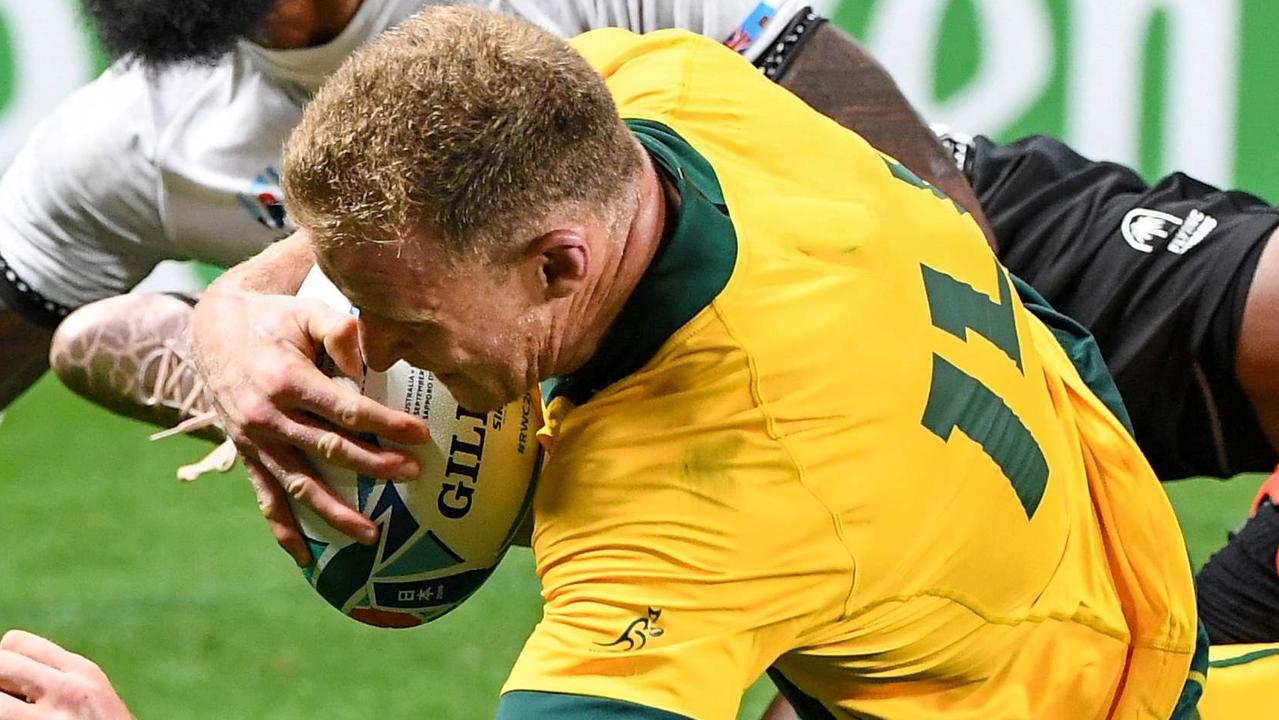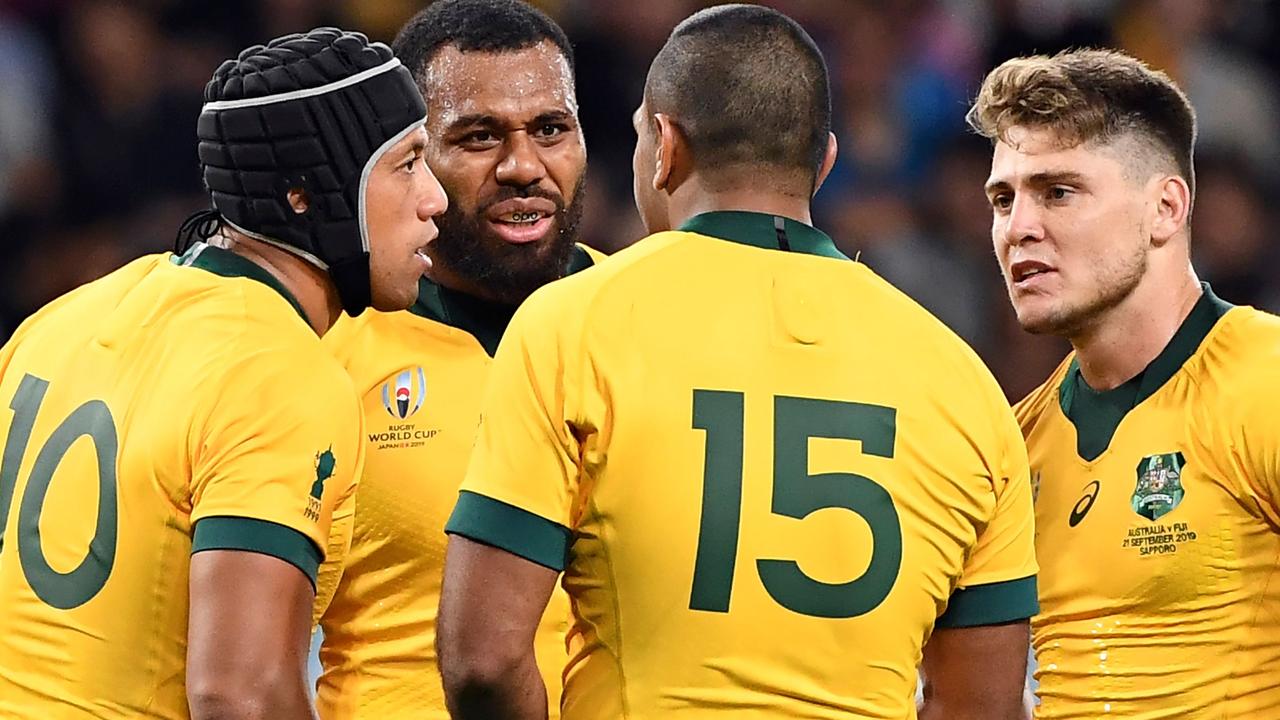Super W’s arrival is crucial for rugby but there are still teething issues, writes Andrew Slack
THE inaugural Super W season is underway and rugby fans should be grateful, because without it the code would be falling behind both its competitors and the times, writes Andrew Slack.
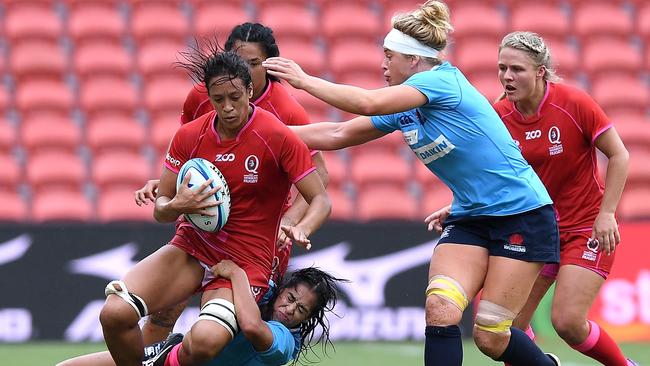
Andrew Slack
Don't miss out on the headlines from Andrew Slack. Followed categories will be added to My News.
THE inaugural Super W season is underway and rugby fans should be grateful, because without it the code would be falling well behind both its competitors and the times.
Admission time. I’m an oldish, white bloke.
As such, I gather I should be in the “resistance to change” set. Apologies but I don’t buy that generalisation.
BIG MOVE: ONO’S RUGBY GAMBLE PAYS OFF
COMM GAMES: SEVENS SQUADS REVEALED
Observation time. I watched the opening Super W match between Queensland and New South Wales last weekend and it was okay.
There was some great stuff in both attack and defence.
There was also some sloppy skills and dodgy tackling. Not unlike a bunch of men’s matches I’ve seen.
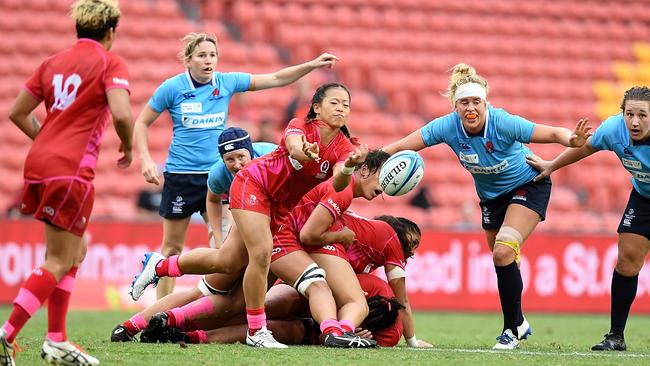
Another admission. I’ve never understood how women tennis players get the same prizemoney at Grand Slams for playing best of three sets while the men slug it out in best of five contests.
I don’t know the figures but maybe the broadcasting revenue the women bring is the same as the men (unlikely I’d guess) but if so, only then it would be logical to expect them to get the same financial return.
Tennis is not my area of expertise, so I’ll let that one lie.
However, with rugby in Australia hardly flowing with rivers of gold, the recompense for our players, both men and women, needs to be addressed in a sober fashion.
In many cases, it seems our male players are overpaid but in a competitive environment driven by the worldwide claim on players, such extravagance can be understood, if not applauded.
With the desire, and indeed the need, for Super W to grow and ultimately to grab similar attention to that which our Olympic gold medal sevens team manages to attract, economics is always going to underpin the mix.
There are teething issues in every new competition and Super W is no different.
Paying players is not the answer even if Player’s Association boss Ross Xenos has expressed concern at the “hard cost to the players who are participating”.
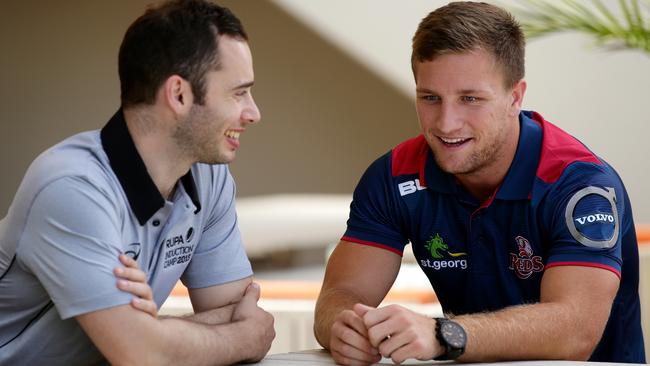
RUPA accepts that lack of remuneration at this time is understandable but it is vital that impatience on this issue doesn’t get the better of them.
Waratahs CEO Andrew Hore nailed it when he suggested such things as supermarket vouchers for participants instead of match payments made sense.
“We don’t want to fall into a situation,” he said, “where the first thing we do for any competition is to start remunerating the individual straight away at the expense of making it the best competition it can be.
“It took 115 years before we were able to sell a TV product like Super Rugby.
“I’m not saying it will take that long, but we should focus on creating good competitions and giving the athlete the things they need to be the best they can be.”
The last thing women athletes in any code need, or I hope want, is to be patronised.
Turning the mundane into something greater can only demean what both genders are trying to do in the arena of competitive sport.
After the Brisbane Global 10s there was lots of talk about an outstanding tackle by Queensland’s Alysia Lefau-Fakaosilea.
It was an absolute beauty. It was also something that most of her teammates and the majority of the men’s Super Rugby teams should be able to execute. It needed to be applauded not idolised.
Making such a big deal of it was suggesting it was an exceptional thing for a woman to do. Why should it be?
Women’s sport and hopefully rugby, is off and running, and the wind is undoubtedly behind its back.
Money though can be a patronising weapon.
Sure, it’s been a long haul for women to get recognition but that shouldn’t mean there’s retrospective payment.
Earn it, and sooner rather than later, it will come and it will be well deserved and even more greatly appreciated.

